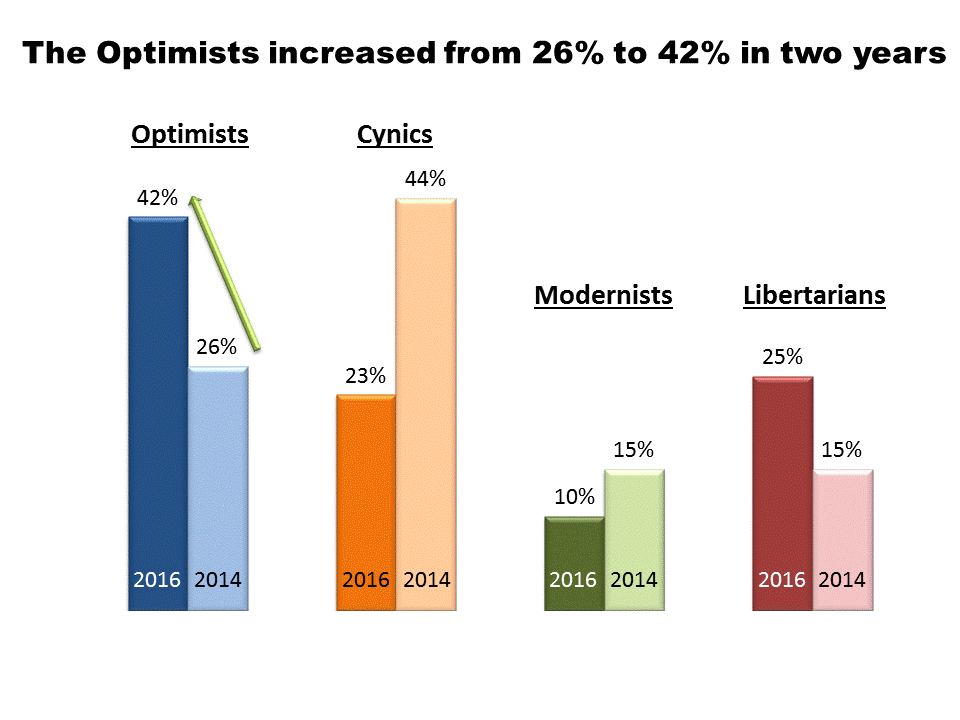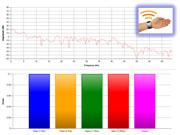Burning Questions

Dec
Leadership vs. Management in Change and Crisis
jerry9789 0 comments artificial intelligence, Burning Questions
There’s a fascinating emerging set of literature on true leadership (versus management) of crises. One of the signal books in this genre is Upstream: The Quest to Solve Problems Before They Happen by Dan Heath. The author explains that true leaders are people whose names you don’t know. Why is that? Because true leaders use tools such as Latent Effects Modeling to discover in time T1 (i.e., now) what they will need to be worried about in time T3 (i.e., years later, when the bad thing could actually occur).
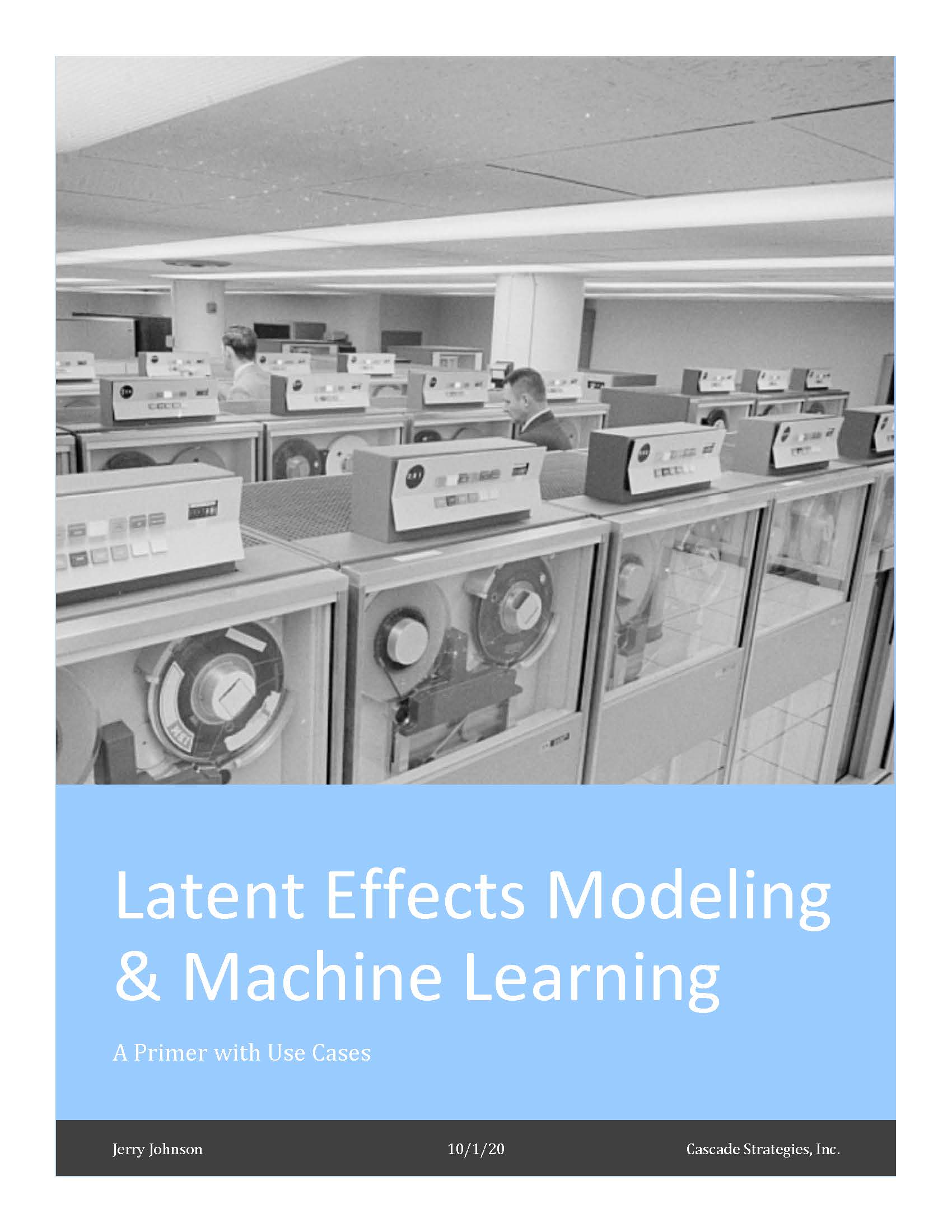
Dec
Latent Effects Modeling with AI & Machine Learning
jerry9789 0 comments artificial intelligence, Burning Questions
We’ve been posting opinions and comments that urge marketers to “get over” artificial intelligence (AI). To dive into AI’s veritable treasure house of research tools and insights, instead of circling it warily, for fear of banging into a “disruption” moment.

Marketers: use advanced analysis techniques for deeper insights
So, I hereby plant the flag of AI for the regular guy (or gal, of course) — well, at least for the professional who wants to use precise and accurate data to propel insights that simply wouldn’t be perceptible with traditional approaches to analysis.
Dec
An Artificial Intelligence Glossary of Common Terms
jerry9789 0 comments artificial intelligence, Burning Questions
Developing a basic understanding of use-cases, trends, and applications for Artificial Intelligence (AI) is helpful to understand the context in which AI is deployed. Keep in mind “AI” is sometimes considered too broad to be a distinct “field.” Rather it is a technology “concepts” with clarifying needed to properly frame discussions on the topic. Therefore we’ve assembled broad definitions to help readers develop a basic vocabulary for communicating about the subject. Think of this glossary as similar to the old Berlitz travel guides of “essential terms” for a given language.
Advanced Analytics

AI introduces a whole new vocabulary to marketing.
A part of data science that uses high-level methods and tools to focus on projecting future trends, events, and behaviors. This gives organizations the ability to perform advanced statistical models such as ‘what-if’ calculations, as well as future-proof various aspects of their operations. The term is an umbrella for several subfields of analytics that work together in their predictive capabilities.
Nov
Applying AI: Healthcare Enrollment Optimization
Aleksey 0 comments artificial intelligence, Burning Questions

Proper application of AI techniques can yield clarity and precision of insights.
Here’s a case where AI rolled into the ongoing rollout of the Affordable Care Act (ACA). To avoid getting lost in the weeds, let’s just recall that there were big-money battles involving healthcare providers, the Federal government, and the confused, newly ACA-insured and wanted-to-be insured.

Nov
Truth to Marketers: AI is a tool, not THE solution
Aleksey 0 comments artificial intelligence, Burning Questions

Capable professionals know AI is a tool to aid solving problems. Alone it is not a solution.
Our previous post urged fellow marketers to “get over” the artificial intelligence (AI) hype. To stop thinking it’s all about “disruptive,” high-tech tools on the bleeding edges of the frontier. The VR goggles. The eye-tracking studies. The neuroscience applications.
Yes, there are plenty of far edges out there, and we’re often leading them for our clients from the edge into the everyday. But look, today, AI is disruptive only if you didn’t see it coming years ago. It’s now hanging out in the research tool shed with longtime favorites like (examples?)

Nov
About AI: Let’s Disrupt Your Idea of Disruption
Aleksey 0 comments artificial intelligence, Burning Questions

How Artificial Intelligence is frequently viewed from the C-Suite.
The marketing industry has been bombarding itself for years with ways to “manage” or “harness” the “disruption” brought upon us by artificial intelligence, machine learning,[insert advanced marketing buzzword here] and the like.
What do we mean by “disruption?”
We mean “OMG, scary, out-there science that’s escaped from the lab and now everyone has to wear VR goggles and get their galvanic skin responses and eyeballs tracked! WTF! How the hell do we do all that?”

Oct
Continuing with our “Please Comment” campaign, this month’s topic is: “A Passionate Plea to Read the Data Fairly.”
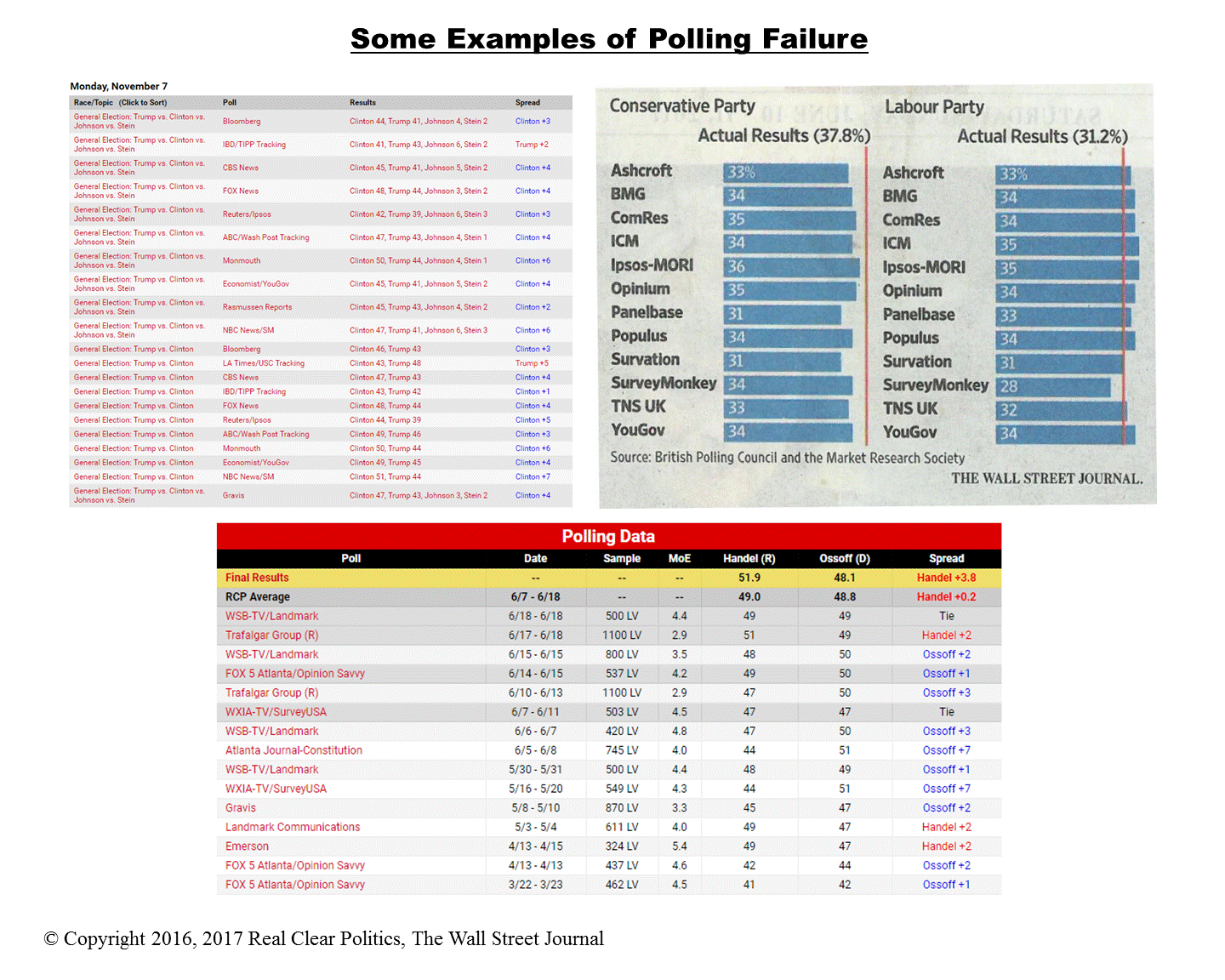
Oct
There are Problems with Self-reported Data that Our Industry Needs to Address
jerry9789 2 comments Burning Questions
We need more than blue-ribbon commissions to “explore” the problem
How many times do we have to be shown there’s something wrong with self-reported data before we actually do something about it?
Below are just three instances of failure in self-reported polling data (wherein the respondent either tells the interviewer how he/she is going to vote or marks in an online or mobile survey how he/she is going to vote).
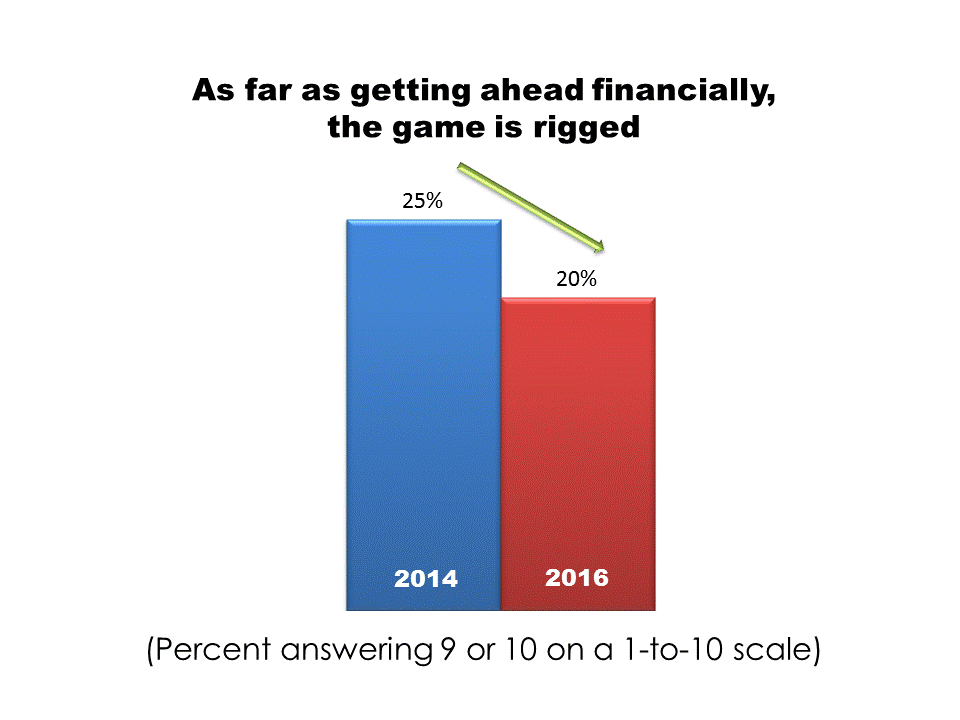
Oct
Many of the responses to our last blog (“How Has the Mood of the Country Changed in the Past Two Years?”), included comments like “a cheery mood is not what I’m hearing,” and “please run your national survey again.”
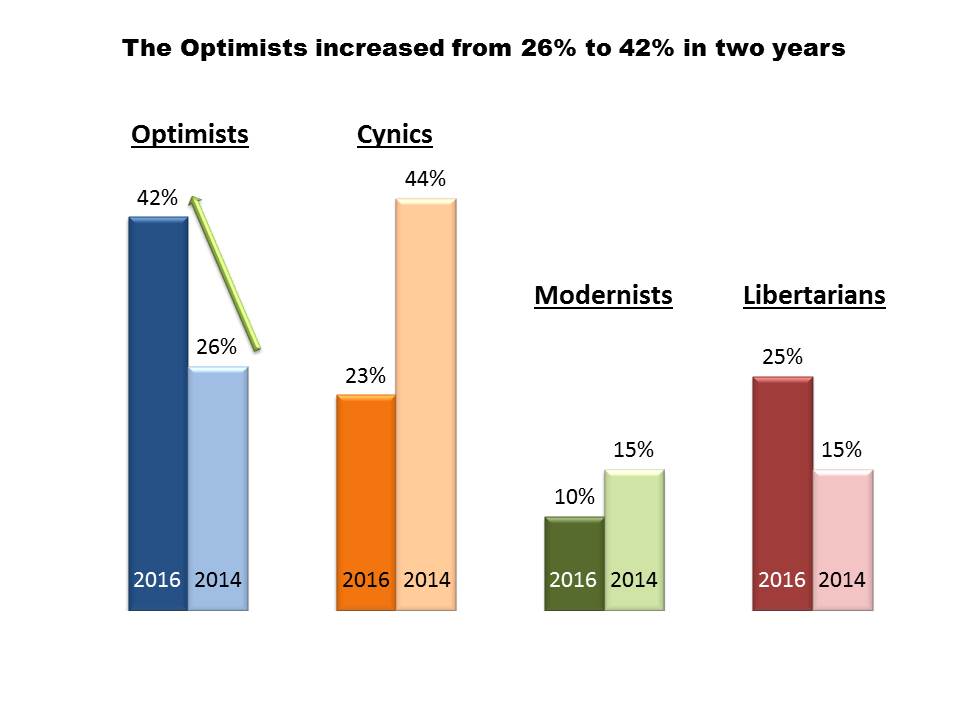
Oct
How Has the Mood of the Country Changed in the Past Two Years?
jerry9789 7 comments Burning Questions
There’s been a spate of articles recently indicating that the country’s in a sour mood. Major left and right factions seem to be in unyielding disagreement with each other, leading to a sense of deadlock, hopelessness, and dread.
Hmm…that’s not what our research reveals. Just as our mid-2016 research was at variance with what the major polls were telling us, our research once again differs from the norm. Let us explain.


